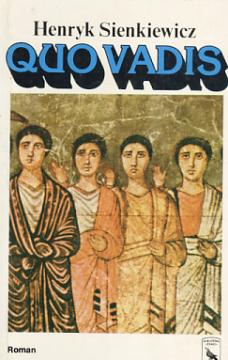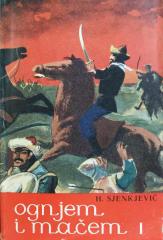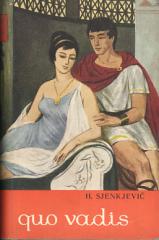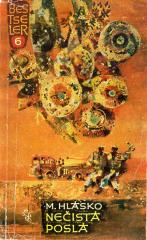
Quo vadis
Henryk Sienkiewicz received the Nobel Prize in 1905 for his novel Quo Vadis, about the persecution of Christians during Nero's reign in the Roman Empire.
The title "Quo Vadis" means "Where are you going?" and alludes to the Christian legend in which St. Peter, fleeing Rome because of persecution, meets Jesus who tells him that he is returning to Rome to be crucified again. This motif symbolizes commitment and sacrifice in the name of faith.
The novel follows the love story between Vinicius, a young Roman patrician, and Lygia, a Christian woman who comes from the conquered Lygian tribe. Vinicius falls in love with Lygia and decides to conquer her, but his path is full of obstacles due to differences in religion and lifestyle. During his quest, Vinicius is introduced to Christianity and undergoes a personal transformation. Through his relationship with Lygia, he becomes aware of the beauty and moral power of Christian teachings, which ultimately leads him to convert to Christianity.
The novel also details the decadence and cruelty of Nero, who is known for his brutal persecution of Christians. After the fire in Rome, which historians attribute to Nero, the emperor blames the Christians and begins to persecute them mercilessly. Descriptions of the torture of Christians in the Colosseum and other horrific scenes emphasize their sacrifice and courage, but also their opposition to Roman moral decline.
With this work, Sienkiewicz wanted to highlight the universal struggle between good and evil, and the power of faith and love as a driving force for change in society. "Quo Vadis" became one of the most famous literary works with the theme of early Christian history, and won Sienkiewicz the Nobel Prize for Literature in 1905.
No copies available
The last copy was sold recently.





